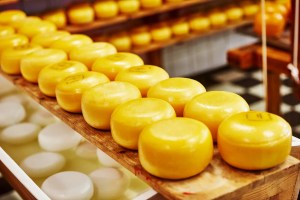It’s not exactly food fraud, in fact, it’s a fabulous case of mistaken identity for a genuine American delicacy; Krispy Kreme donuts. These tasty treats caused plenty of trouble for Florida man Daniel Rushing after a police officer discovered flakes of donut glaze on the floor of his car after pulling him over for a minor traffic offence. Unfortunately, the officer mistook the pieces of glaze for crystal meth.
The Orlando Sentinel reports that Rushing man spent ten hours in jail after the officer performed two roadside drug tests on the sugary substances, which returned positive results for methamphetamine. A state drug lab has since confirmed that it was a case of mistaken identity. Rushing reported that although he had nothing to hide, he would “never let anyone search my car again”.

